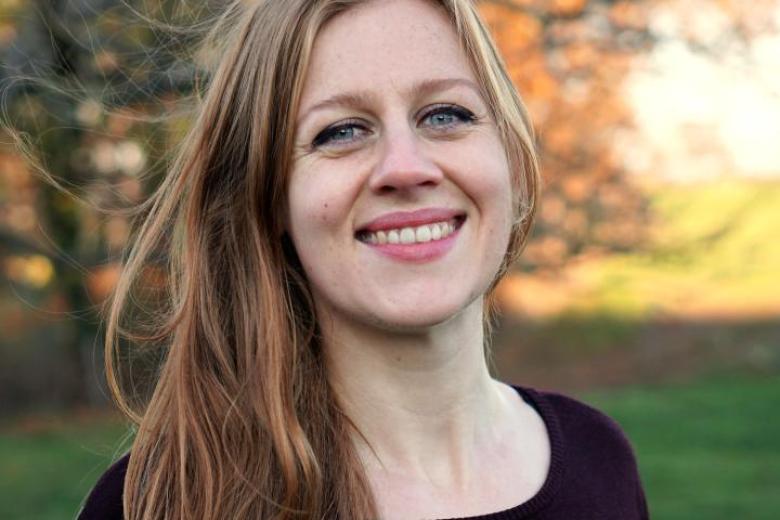Continuation Maastricht Centre for the Innovation of Classical Music
Zuyd University, philharmonie zuidnederland and Maastricht University will continue their collaboration in the Maastricht Centre for the Innovation of Classical Music (MCICM) for the next four years. During a festive gathering at the Theater aan het Vrijthof in Maastricht on Friday, September 23, the new cooperation agreement was signed by Stefan Rosu, intendant and director of philharmonie zuidnederland, Christine Neuhold, dean of UM's Faculty of Arts and Social Sciences, and Luc Verburgh, chairman of Zuyd University's Board of Governors.
Over the past four years, philharmonie zuidnederland, Zuyd University of Applied Sciences and Maastricht University have already worked together in the MCICM. Financially supported by the Province of Limburg, the partners conducted research into innovations in classical music practice. The three partners decided to continue the cooperation in the next four years.
MCICM
The MCICM is an initiative of Stefan Rosu. He sought collaboration with Maastricht University and Zuyd University of Applied Sciences in 2015 on behalf of philharmonie zuidnederland to establish a center for scientific and practice-oriented artistic research that could be embedded in the three participating organizations. The MCICM started on September 1, 2018 and is organized around the special chair Innovation of Classical Music, which has been occupied since the beginning by Prof. Dr. Peter Peters, also director of the center. The goal of the center is to contribute to the renewal of professional practice and higher music education in classical music through research.
Musicians of the future
In the coming years, the MCICM will focus on the tension between tradition and innovation in the professional practice of classical music and higher music education. The central question is how both sectors can reinforce each other and learn from each other when it comes to renewing and future-proofing practice, especially that of symphony orchestras.
Peters: "In classical music practice, people often focus on the past. This is evident in the focus on the canon of musical masterpieces, the emphasis on handed-down standards of artistic excellence and the dominance of master-apprentice didactics in higher music education. On the other hand, innovation is needed because audience numbers for concerts are stagnant, but also to better respond to societal changes such as digitization, the pursuit of sustainability and the call for diversity and inclusion. All these developments have implications for both the education and and professional practice of musicians."
Relevance
Stefan Rosu: "Within philharmonie zuidnederland, we have already started to adapt the selection process of new musicians to the requirements of the future. The input of the MCICM is indispensable in this process. The MCICM will also support philharmonie zuidnederland to future-proof itself as a relevant cultural organization."
Christine Neuhold, dean of the Faculty of Arts and Social Sciences (UM): "Research at our faculty has an interdisciplinary character. Research into innovative ways to make classical music relevant to contemporary audiences is one example. The mutual interaction between scientific and practice-oriented research in collaboration with Zuyd and philharmonie zuidnederland is in line with our desire to work with partners in the region."
Mare de Groot, Director of Performing Arts (Zuyd University of Applied Sciences), underlines the importance of the MCICM for the renewal of the educational program at the Maastricht Academy of Music: "The world is moving. In order to prepare optimally for this as an education, reform of the curriculum is necessary. How will our practical education fit in better with changing professional practice? The triangle of practice, science and professional education makes it possible to develop knowledge that contributes to even better, even more relevant music education."
Previous research
Results from MCICM research over the past four years provide a basis for continuity, Peters said. "The academic research focused on the concept of the 'musical work' and how it organizes practice, the way musical works are passed on in traditions of training and performance that can be understood as 'archives,' and on the dominance of the artistic concept of quality in relation to other 'repertoires of quality.' In the practice and artistic research, experiments in orchestral practice were designed and conducted, and a learning model for this practice was developed. The outcomes of the research were shared in scientific and professional publications. Through international symposia and seminars, MCICM research gained wider visibility and the center became connected to other research institutions and practice organizations."
Stefan Rosu concludes, "It starts with formulating core industry questions. The worldwide uniqueness of the MCICM is that we search for answers in a structural collaboration with science, and with multiple parties we immediately apply the scientific input in practice. The first four years have already shown that this approach is successful. I have firm expectations for the next four years and want my orchestra - the philharmonie zuidnederland - to benefit from the collaboration."
Also read
-
Prestigious European grant for two UM researchers
Two researchers from Maastricht University (UM) have received a prestigious ERC Consolidator Grant from the European Research Council. This will allow them to set up a scientific research team in the coming years for studies on bioprinted models of a human kidney and on female guest workers from...

-
UM conducts research into Limburg language in child care
Scientists from Maastricht University are involved in a study on the use of Limburg language in child care.

-
Digital conflicts about climate in the picture
Philosopher Maud Oostindie of Maastricht University is one of the new 'Faces of Science' presented today by the KNAW. Through blogs and vlogs, she is going to show what her life as a young scientist looks like.
